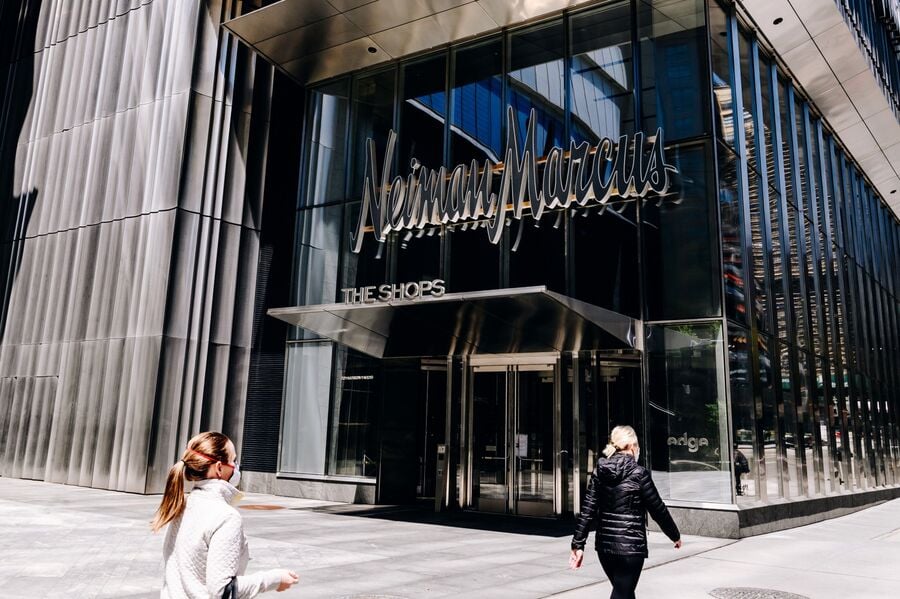

Wells Fargo & Co. is buying the former Neiman Marcus space at Manhattan’s Hudson Yards for roughly $550 million and plans to convert it into offices, according to people with knowledge of the deal.
The transaction includes about 400,000 square feet (37,000 square meters) spanning floors five through seven at 20 Hudson Yards, according to the people, who asked not to be identified because the matter is private.
The sellers are the developers, Related Cos. and Oxford Properties Group, which still own the rest of the 11-story building, home to the project’s shopping mall and restaurants.
Newmark Group Inc.’s Adam Spies and Doug Harmon are handling the transaction. The brokerage didn’t immediately respond to a request for comment. Representatives for Wells Fargo, Related and Oxford declined to comment.
The deal, expected to close soon, is one of the largest commercial property transactions in Manhattan this year. Many buyers and sellers have been unable to agree on pricing as values decline and borrowing costs rise.
Remote work and cost-cutting by tenants has hurt demand for offices in New York, but companies in the market for space have gravitated toward newer developments, including Hudson Yards. Private equity giant KKR & Co. recently agreed to expand its offices at the project on the far west side. The firm also owns a majority stake in the observation deck at 30 Hudson Yards.
Wells Fargo already houses its securities, investment banking and capital markets business at 30 Hudson Yards. The company purchased roughly 500,000 square feet of offices there in 2015.
The Neiman Marcus store, the luxury chain’s first in Manhattan, has sat empty since it shuttered in 2020 as part of bankruptcy proceedings.

While industry statistics pointing to a succession crisis can cause alarm, advisor-owners should be free to consider a middle path between staying solo and catching the surging wave of M&A.

New joint research by T. Rowe Price, MIT, and Stanford University finds more diverse asset allocations among older participants.

With its asset pipeline bursting past $13 billion, Farther is looking to build more momentum with three new managing directors.

A Department of Labor proposal to scrap a regulatory provision under ERISA could create uncertainty for fiduciaries, the trade association argues.

"We continue to feel confident about our ability to capture 90%," LPL CEO Rich Steinmeier told analysts during the firm's 2nd quarter earnings call.
Orion's Tom Wilson on delivering coordinated, high-touch service in a world where returns alone no longer set you apart.
Barely a decade old, registered index-linked annuities have quickly surged in popularity, thanks to their unique blend of protection and growth potential—an appealing option for investors looking to chart a steadier course through today's choppy market waters, says Myles Lambert, Brighthouse Financial.
